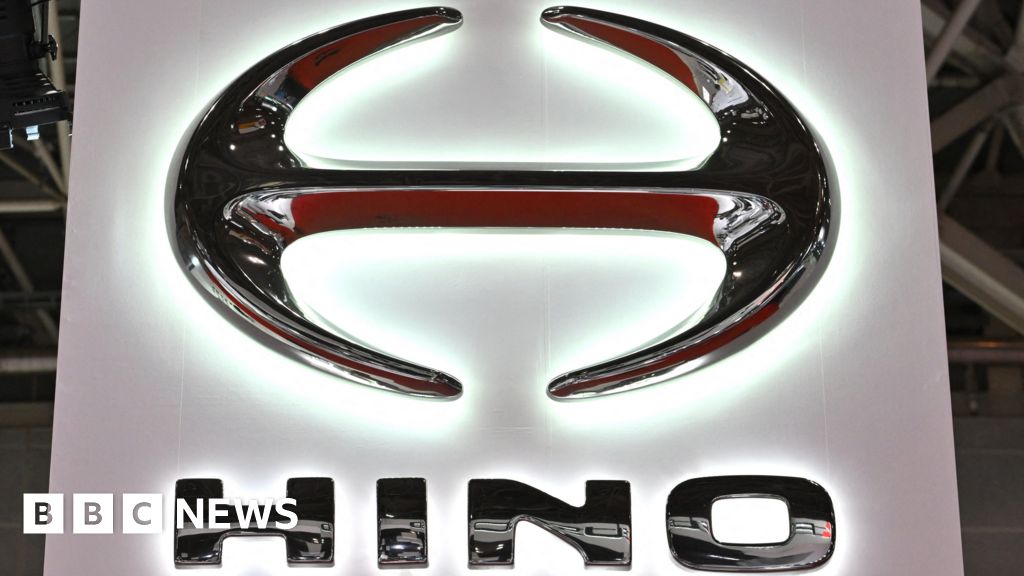ARTICLE AD BOX
By Lora Jones
Business reporter, BBC News
Image source, Getty Images
Image caption,Georgia Toffolo and other British influencers have collaborated on clothing lines with the fast fashion firm
Workers for some suppliers of the Chinese fashion giant Shein are doing excessive overtime, a non-governmental organisation has suggested.
A number of staff across six sites in Guangzhou were found to be working 75-hour weeks in a report by Swiss advocacy group Public Eye.
David Hachfeld of Public Eye said there was "enormous pressure" on staff to turn clothes around quickly.
Shein said it takes supply chain issues seriously and will review the report.
Public Eye's researchers visited 17 factories supplying Shein and its parent company Zoetop, near the Shein headquarters in Guangzhou. The organisation typically campaigns on big Swiss businesses and their dealings abroad.
It interviewed 10 workers across six of those sites, which were solely receiving orders from Shein at the time.
They reported that the workers they spoke to clocked three shifts per day, often with only one day off a month.
Public Eye suggests the fact that workers, mainly migrants, are paid per item of clothing encourages them to work long hours.
Although such hours aren't unusual in Chinese production hubs, they violate local labour laws, which set out a maximum working day of eight hours, as well as a 40-hour working week.
Shein said: "Upon learning of the report, we immediately requested a copy and when we receive and review the report, we will initiate an investigation.
"We have a strict supplier Code of Conduct which includes stringent health and safety policies and is in compliance with local laws. If non-compliance is identified we will take immediate action," the spokesperson said.
Public Eye launched an investigation into Shein, which works with thousands of suppliers, last year in a bid to find out more about the fashion giant's structure.
The private company does not disclose financial figures, but its sales are thought to have soared during the pandemic with consumers making more of online shopping. Data provider CB Insights estimates that revenues topped 63.5bn yuan (£7.4bn) in 2020.
So-called "fast-fashion" companies, who offer low price clothing, have faced scrutiny over their supply chains.
Victoria Bellandini, senior fashion lecturer at the University of Lincoln said: "You cannot get clothes that cheap that are made in good working conditions and until we really know where our clothes are coming from, we can't source these problems".
She said: "Big brands say they check their suppliers but so much of this is farmed out to cheaper factories, meaning there is a widespread lack of transparency behind industry standards,
"The fashion industry is changing to a certain extent at the higher end level but this isn't happening for cheaper clothes brands".
The online-only fast fashion giant
Image source, Shein
Image caption,Shein has gained huge attention on social media platforms like Instagram and TikTok
£1.50 tops, £10 midi skirts - and even a £30 wedding dress.
Shein is winning over young shoppers in the US, UK, Europe and Australia by producing fast fashion even faster, and often at cheaper prices, than its rivals Boohoo or Asos.
It's been operating in its current form since 2013. The company relies on thousands of third-party suppliers in China to produce small batches of clothes, about 50-100 per item.
If the items do well with its trend-conscious customers? Shein orders more from its suppliers. If not, it's discontinued.
Shein has accelerated the "test and repeat" model, made famous by the likes of Zara owner Inditex and H&M. Just 6% of Shein's inventory remains in stock for more than 90 days.
Mr Hachfeld, who is also the director of the Clean Clothes Campaign in Switzerland, suggested that the long hours observed were "directly linked" to the piece-rate system, which is widespread in China.
"If you have that without implementing checks on limits... that automatically leads to high working hours because workers need to make their living."
He added: "It's striking to see that a company with such big influence and huge turnover is apparently not yet acting on its responsibility to ensure that pay rates are at a level where you can make a good living within normal working hours."
In a "good month" several workers said that they might make up to 10,000 Yuan (£1,186). In slow months, their pay could be two-thirds lower.
Some also claimed that they were working without a contract, the Public Eye report says, although workers generally said that they were paid on time.
Shein in numbers
- 6,000 new items added daily
- £7.90 average item cost
- 250 million followers on social media
- 200 in-house designers of more than 7,000 employees
- 25 day turnaround time for a piece of clothing
The NGO also visited the 16 million square foot Shein warehouse on the outskirts of Guangzhou, where it ships its clothes from. About one dozen employees interviewed there said they worked similar, long, hours.
At one supplier site, researchers also found that there were no emergency exits and barred windows, which could prove fatal in the event of a fire.
The fast fashion firm outlines a code of conduct for suppliers on its US website.
It says that they must "provide a safe, hygienic and healthy workplace environment" and that working hours should comply with local laws and regulations.
As well as thousands of smaller suppliers along its supply chain, the e-retailer uses 200 contract manufacturers.
The BBC understands that the company performs quarterly assessments of its suppliers, sometimes involving external auditors.
But the business model has raised concerns among politicians in the UK.
Chair of the Foreign Affairs Committee Tom Tugendhat previously told the BBC "when the price is too good you have to ask who is really paying and how".
The production and promotion of its crop tops and bikinis on social media has raised questions among environmentalists too.
How can fashion become more sustainable?
Shein insists that its method of producing clothes in small batches is more efficient and that little goes to waste. It also points out on its website that it wants to source more recycled fabrics and uses printing technology that is less polluting than traditional screen printing for graphics and patterns.
But Roberta Lee, a sustainable fashion stylist, has suggested that the company preys "on the fears of outfit repetition syndrome", with pieces likely to be discarded to landfill after a matter of weeks.
While Public Eye says that it would like to see stronger regulation of the fast fashion industry, "taking a slower approach to fashion consumption and making the next click count is a good place to start", according to Mr Hachfeld.

 3 years ago
71
3 years ago
71








 English (US) ·
English (US) ·